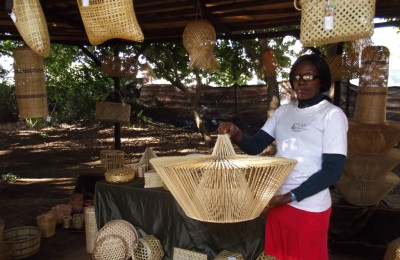By Joyce Mukucha
For a household to be called a ‘home’, it is because of a woman, yes a man is important but a woman has a caring heart which energies her to stand as a gallant solider, toil and risk for the well-being of her family.
Women are the backbone of sustainable livelihoods in their communities. They work as farmers, business women, market sellers among other jobs.
In most parts of the country’s rural areas, women never rest as they can be seen thriving and working hard aiming to sustain their families by the little they have. Their role in the household, community and the nation at large is crucial and significant.
What is touching is the fact that, for the most remote communities, females are living a misery life and they really need a transformation. In different societies they reside, most of women are treated with negativity and their special respect is not being extended to them. Gender equality is not prevailing in rural areas as women encounter discrimination by men.
These women do not enjoy land and property rights and for young girls, they face barriers in as much as accessing financial support to acquire education. According to UN Women, it states that there should be increased access to healthcare, provision of free or subsidised essential drugs and commodities, access to family planning measures and upgrading their skills through agricultural extension services.
UN Women also positions that although women in developing countries constitute 43% of the agricultural labour force, many of them are without ownership of the lands they work in and neither do they have an authoritative voice in local governments in developing countries,
If the Government of Zimbabwe ensure that there is robust building of social protection system, labour and product markets, governance institutions and civil society organisations, the Sustainable Development Goals (SDGs) will be a success.
In an interview with Philistia Makwarambi, a woman who resides in Chidamoyo, Hurungwe, said the government must show commitment to creating opportunities for rural women across every goal.
She said there should be advance progress as well as inclusion for every women and young girls in rural areas was concerned.
“Life is not flowing smoothly for me in the rural area, I face many challenges in my day to day lifestyle as I try to look after my children. Our roles as women in the development of the community is mostly moulded by decrees of confined patriarchy and religious beliefs. We have limited access to critical infrastructures in the rural areas. Therefore, we are pleading that policy recommendations should be taken so as to target on addressing such barriers,” she said.
It is not only in Zimbabwe where women in remote areas are suffering but also in developing such as Nigeria. Quality of life in the rural setting of Nigeria is a multi-layered spectacle determined by the increasing and co-operating influences of various and varied dynamics.
According to UN News Centre, as the International Women’s Day was celebrated in Nigeria, Phumizile Mlambo, the UN Women Executive Director said, “Rural women play a key role in underpinning sustainable development. Following the framework of Agenda 2030 will help in accelerating progress for rural women.”
She reiterated that there was need to learn lessons from the lessons of applying the Beljing Platform for Action and the Millennium Development Goals (MDGs). We have unparalleled commitment, she said, to culminate poverty and hunger, achieve food and nutrition security and guarantee sustainable livelihoods by investing in rural women and climate-resilient agriculture.
Women have been disadvantaged for centuries and a majority of them do not have access to justice. They have always been underrated, treated as minors or second class citizens. The women are tired of the patriarchal society and male chauvinism hence they now need to be included in decision and policy making so that their interests are taken into account.
According to the Beljing Platform for Action 1995, without the active participation of women and the incorporation of women’s perspectives at all levels of decision making, the goal of equality, expansion and peace cannot be achieved.






